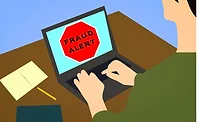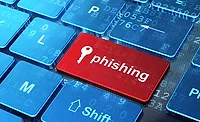DOJ Announces Disruption of Hundreds of Online COVID-19 Related Scams

Federal authorities announced that an ongoing cooperative effort between law enforcement and a number of private-sector companies, including multiple internet domain providers and registrars, has disrupted hundreds of internet domains used to exploit the COVID-19 pandemic to commit fraud and other crimes.
According to the Department of Justice (DOJ), as of April 21, 2020, the FBI's Internet Crime Complaint Center (IC3) has received and reviewed more than 3,600 complaints related to COVID-19 scams, many of which operated from websites that advertised fake vaccines and cures, operated fraudulent charity drives, delivered malware, or hosted various other types of scams. To attract traffic, these websites often utilized domain names that contained words such as “covid19,” or “coronavirus.” In some cases, the fraudulent sites purported to be run by, or affiliated with, public health organizations or agencies, notes the DOJ.
For example, the cooperative effort has disrupted:
- An illicit website pretending to solicit and collect donations to the American Red Cross for COVID-19 relief efforts.
- Fraudulent websites that spoofed government programs and organizations to trick American citizens into entering personally identifiable information, including banking details.
- Websites of legitimate companies and services that were used to facilitate the distribution or control of malicious software.
Multiple federal agencies have worked to analyze the complaints, investigate ongoing fraud, phishing, or malware schemes, and assemble vetted referrals, says the DOJ. Agencies have sent hundreds of these referrals to the private-sector companies managing or hosting the domains and many of those companies, in turn, have taken down the domains after concluding that they violated their abuse policies and terms of service, without requiring legal process.
As a further example, shortly after the IRS notified the public of web links to apply for the COVID-19 related stimulus payments, the FBI identified a number of look-alike IRS stimulus payment domains, adds the DOJ. "These look-alike domains are often indicative of future phishing schemes and in order to minimize the potential fraudulent use of the these domains, the FBI alerted numerous domain registries and registrars to the existence of these look-alike URLs," says the DOJ.
According to the DOJ, The following tips can help protect individuals and businesses from being victimized by cyber actors:
- Independently verify the identity of any company, charity, or individual that contacts you regarding COVID-19.
- Check the websites and email addresses offering information, products, or services related to COVID-19. Be aware that scammers often employ addresses that differ only slightly from those belonging to the entities they are impersonating. For example, they might use “cdc.com” or “cdc.org” instead of “cdc.gov.”
- Be wary of unsolicited emails offering information, supplies, or treatment for COVID-19 or requesting your personal information for medical purposes. Legitimate health authorities will not contact the public this way.
- Do not click on links or open email attachments from unknown or unverified sources. Doing so could download a virus onto your computer or device.
- Make sure the anti-malware and anti-virus software on your computer is operating and up to date. Keep your operating system up to date as well.
- Ignore offers for a COVID-19 vaccine, cure, or treatment. Remember, if a vaccine becomes available, you will not hear about it for the first time through an email, online ad, or unsolicited sales pitch.
- Check online reviews of any company offering COVID-19 products or supplies. Avoid companies whose customers have complained about not receiving items.
- Research any charities or crowdfunding sites soliciting donations in connection with COVID-19 before giving any donation. Remember, an organization may not be legitimate even if it uses words like “CDC” or “government” in its name or has reputable looking seals or logos on its materials. For online resources on donating wisely, visit the Federal Trade Commission (FTC) website.
- Be wary of any business, charity, or individual requesting payments or donations in cash, by wire transfer, gift card, or through the mail. Do not send money through any of these channels.
Looking for a reprint of this article?
From high-res PDFs to custom plaques, order your copy today!







